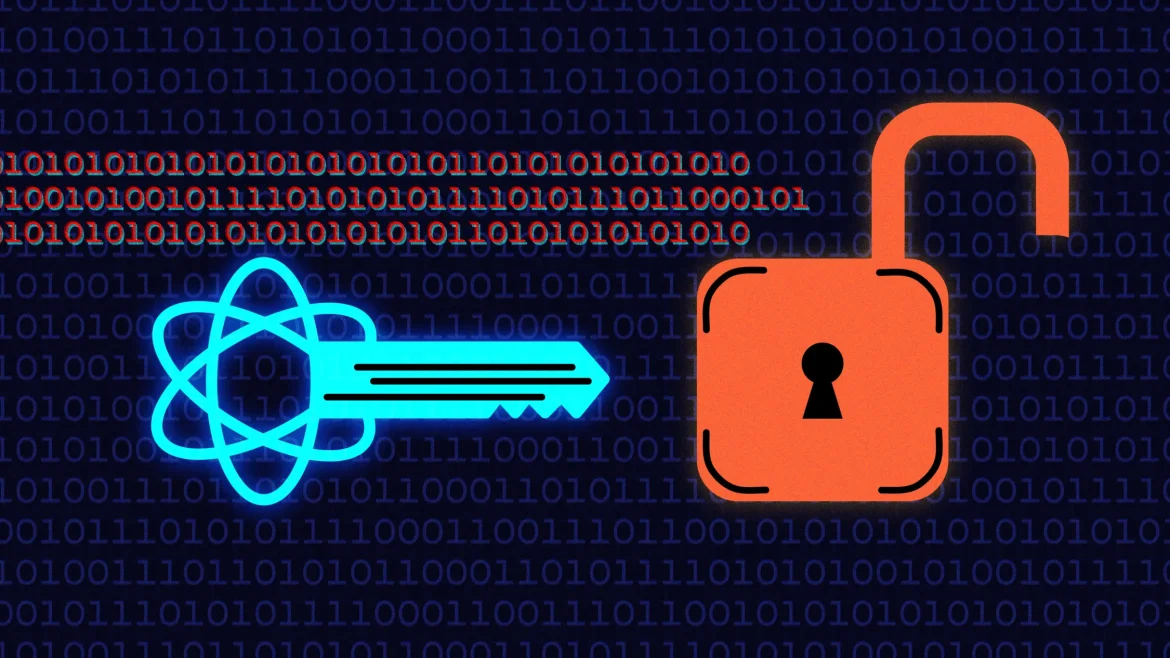Quantum cryptography is an advanced field at the intersection of quantum physics and information security. It leverages the principles of quantum mechanics to create cryptographic systems that are fundamentally more secure than classical methods. This article explores the fundamentals of quantum cryptography, its applications, benefits, challenges, and its potential impact on the future of digital security.

Understanding Quantum Cryptography
- What is Quantum Cryptography?
- Definition: Quantum cryptography is a method of securing information using the principles of quantum mechanics. Unlike classical cryptography, which relies on mathematical algorithms and computational complexity, quantum cryptography utilizes quantum properties such as superposition and entanglement to achieve security.
- Core Principles: The core principles of quantum cryptography include quantum key distribution (QKD) and quantum entanglement. QKD enables the secure exchange of cryptographic keys, while entanglement allows for the correlation of particles in a way that enhances security.
- How Quantum Cryptography Works:
- Quantum Key Distribution (QKD): QKD is a process that allows two parties to securely exchange encryption keys over an insecure channel. By encoding information into quantum bits (qubits), QKD ensures that any eavesdropping attempts alter the quantum state, thereby revealing the presence of an intruder.
- Quantum Entanglement: Quantum entanglement involves creating pairs of entangled particles that are correlated in such a way that the state of one particle instantly affects the state of the other, regardless of distance. This property can be used to transmit information securely between parties.
Applications of Quantum Cryptography
- Secure Communication:
- Government and Military: Quantum cryptography has significant applications in government and military sectors, where secure communication is critical. QKD can protect sensitive information from espionage and unauthorized access by providing a secure method for key distribution.
- Financial Sector: The financial industry is increasingly adopting quantum cryptography to safeguard transactions and protect confidential financial data. By implementing QKD, financial institutions can enhance the security of their communications and transactions.
- Data Protection:
- Cloud Computing: As cloud computing becomes more prevalent, ensuring the security of data stored and processed in the cloud is essential. Quantum cryptography can be used to secure data transfers and storage, providing an additional layer of protection against potential breaches.
- Healthcare: In healthcare, protecting patient data and medical records is crucial. Quantum cryptography can be applied to secure electronic health records (EHRs) and ensure the confidentiality and integrity of sensitive medical information.
- Secure Networking:
- Quantum Networks: The development of quantum networks involves creating communication systems that use quantum cryptographic techniques to ensure secure data transmission. These networks can be used to establish secure links between various nodes, enhancing overall network security.
- Internet of Things (IoT): As the IoT expands, securing interconnected devices becomes increasingly important. Quantum cryptography can provide robust security solutions for IoT networks, protecting data exchanged between devices and preventing unauthorized access.

Benefits of Quantum Cryptography
- Unconditional Security:
- Principle of Uncertainty: Quantum cryptography offers unconditional security based on the principles of quantum mechanics. Unlike classical cryptographic methods, which rely on computational complexity, quantum cryptography is secure against any form of attack due to the inherent properties of quantum systems.
- Detection of Eavesdropping: One of the key advantages of quantum cryptography is its ability to detect eavesdropping attempts. Any interference with the quantum key distribution process alters the quantum state, making eavesdropping detectable and ensuring the integrity of the communication channel.
- Future-Proof Security:
- Resistance to Quantum Attacks: As quantum computers develop, they may pose a threat to classical cryptographic systems. Quantum cryptography, however, is designed to be resistant to quantum attacks, providing a future-proof solution for secure communication and data protection.
- Long-Term Security: The principles of quantum cryptography ensure that security is maintained over the long term. As long as the quantum key distribution process is implemented correctly, the security of the transmitted data remains intact, even in the face of evolving threats.
- Advancements in Technology:
- Technological Innovation: The development of quantum cryptography has spurred advancements in quantum technologies, including quantum computing and quantum communication systems. These innovations contribute to the growth of the quantum technology ecosystem and open up new possibilities for secure communication.
Challenges and Considerations
- Technical Challenges:
- Implementation Complexity: Implementing quantum cryptographic systems requires specialized equipment and expertise. The complexity of setting up and maintaining quantum key distribution systems can be a barrier to widespread adoption.
- Distance Limitations: Quantum cryptography is currently limited by the distance over which quantum signals can be transmitted. The effectiveness of QKD decreases with increasing distance, necessitating the development of solutions to extend the range of quantum communication.
- Cost and Infrastructure:
- High Costs: The cost of quantum cryptographic systems and infrastructure can be prohibitively high. Investing in quantum technology requires significant financial resources, which may limit access to quantum cryptography for smaller organizations and individuals.
- Infrastructure Requirements: Quantum cryptography relies on specialized hardware and infrastructure, such as photon detectors and quantum repeaters. Building and maintaining this infrastructure can be challenging and costly.
- Standardization and Regulation:
- Lack of Standards: The field of quantum cryptography is still evolving, and there is a lack of standardized protocols and regulations. Developing and implementing industry-wide standards is crucial for ensuring compatibility and interoperability between different quantum cryptographic systems.
- Regulatory Issues: As quantum cryptography becomes more prevalent, regulatory considerations will play a significant role in shaping its adoption and implementation. Ensuring compliance with regulations and addressing legal and ethical issues will be important for the widespread use of quantum cryptography.
The Future of Quantum Cryptography
- Ongoing Research and Development:
- Advancements in Technology: Continued research and development in quantum cryptography will lead to improved techniques and technologies. Advances in quantum communication, quantum key distribution, and quantum hardware will enhance the capabilities and applications of quantum cryptography.
- Integration with Existing Systems: Future developments will focus on integrating quantum cryptography with existing communication and security systems. Combining quantum cryptographic techniques with classical methods will create hybrid solutions that leverage the strengths of both approaches.
- Broadening Applications:
- Expansion into New Sectors: As quantum cryptography matures, its applications will expand into new sectors, including commercial, industrial, and consumer markets. The technology will become increasingly accessible and relevant across various domains.
- Global Deployment: The global deployment of quantum cryptographic systems will enhance international communication security and foster collaboration between countries and organizations. Establishing secure quantum communication networks on a global scale will be a significant milestone for the technology.
- Ethical and Social Implications:
- Ethical Considerations: The ethical implications of quantum cryptography, including issues related to privacy and security, will need to be addressed. Ensuring that quantum technologies are used responsibly and ethically will be crucial for their acceptance and adoption.
- Public Awareness: Raising public awareness about quantum cryptography and its benefits will be important for promoting understanding and acceptance of the technology. Educating stakeholders and the general public about the advantages and limitations of quantum cryptography will support its integration into society.

Conclusion
Quantum cryptography represents a groundbreaking advancement in the field of information security, offering unprecedented levels of security and resilience against future threats. By leveraging the principles of quantum mechanics, quantum cryptography provides a robust solution for secure communication and data protection. Despite challenges related to implementation, cost, and standardization, the future of quantum cryptography holds great promise. As technology continues to evolve, quantum cryptography will play a pivotal role in safeguarding digital communications and shaping the future of secure information exchange.


